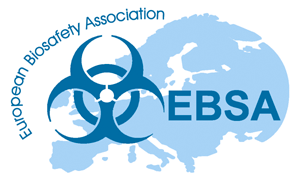About Pre conference course C - Field Biosafety perspectives on One Health: From sampling multiple species to working in a Mobile Lab
Pre conference course C - Field Biosafety perspectives on One Health: From sampling multiple species to working in a Mobile Lab
Instructors
Karin Darpel, Sophie Duraffour, Emily Nelson
Course overview
When outbreaks of high-risk viral pathogens strike, aspects of laboratory diagnostics or research are often performed directly in the field, at the epicenter of the epidemic. What then, are the required biosafety precautions to apply and how can they be implemented under challenging conditions?
Outbreaks can occur in diverse “field” settings such as farms, disaster areas, remote villages or buzzing cities. Applying, and complying with, biosafety and biosecurity measures in such contexts requires adaptability. Depending on the type of outbreak (e.g., restricted to animals), the virus (e.g., risk-group 3 or 4 pathogen) and the transmission route(s), different biosafety measures and laboratory support must be considered to safeguard public, animal, and/or environmental health. Sometimes these challenges can only be overcome by deploying a laboratory capacity to the field. Setting up and running mobile laboratories has proven vital in combating outbreaks of great public health concern such as Ebola virus and SARS-CoV-2.
Operating safely in the field poses many challenges. Such challenges include, among others, how to safely sample diverse species under very different conditions (e.g., sampling of birds for avian influenza monitoring), keep those working with you safe, transport the samples to the laboratory, handle the samples for laboratory analysis (e.g., deployment of a mobile laboratory), and deal with infectious waste produced in remote locations with limited or no waste management infrastructure.
Join us for an immersive 1.5-day pre-conference seminar about field biosafety perspectives in context of One Health. This course is designed for professionals ranging from medium-level to beginners in the field, and aims to provide foundational knowledge and hands-on experience of applied biosafety practices ranging from field sampling situations of different species to setting up and running mobile laboratories in the course of viral outbreaks of veterinary, zoonotic and public health concern. The seminar will be led by field scientists with expertise in applying strict biosafety principles in unconventional settings in the context of viral disease outbreaks of human or animal concern. This course is limited to 20 participants to ensure an interactive and engaging learning environment.
Key Learning Objectives:
By the end of the course, participants will:
-
Differentiate and appropriately select PPE and equipment for various field activities, including veterinary and zoonotic sampling
-
Understand principles and possibilities of applying key biosafety protocols (clean and dirty sites, waste collection) to diverse field site settings
-
Comprehend the basics of mobile laboratory operations in support to public health response.
-
Demonstrate proficiency in establishing “clean” and “dirty” zones within a mobile laboratory.
-
Understand the critical aspects of sample reception, emphasizing PPE and biosafety measures.
-
Gain practical experience in donning and doffing different types of PPE.
-
Acquire hands-on skills in assembling and operating a field laboratory glovebox for handling high-risk pathogens.
-
Collaborate with peers to apply theoretical knowledge in real-world scenarios.
Join us for this unique opportunity to enhance your knowledge and practical skills in mobile laboratories and field biosafety, setting the stage for informed and confident field operations for research or public health purposes.
Main Topics:
-
PPE for zoonotic sampling, different types of PPE
-
Applying key biosafety principles (clean and dirty sites, risk zones, controlled movement, waste management) to a diverse range of field sites
-
Basic concepts about mobile labs in public health and research focusing on the requirements for human and zoonotic diagnostics
-
Type II Rapid Response Mobile Labs for human diagnostics of high-risk pathogens
-
Biosafety procedures for running a Mobile Lab: setting up the lab, safety equipment and practical experience of safe working procedures across all stages of mobile lab operations such as sample reception, inactivation (working in containment), SOPS, workflow of lab, decontamination, waste management
CWA 16335:2011, Annex C,
- C.2.1.2.4 Containment principles
- C.2.1.2.5 Biorisk assessment and management
- C.2.1.2.7 Facility design
- C.2.1.2.10 Personal protective equipment (PPE)
- C.2.1.2.11 Infection control, disinfection, decontamination, and sterilisation
- C.2.1.2.12 Biological waste management
